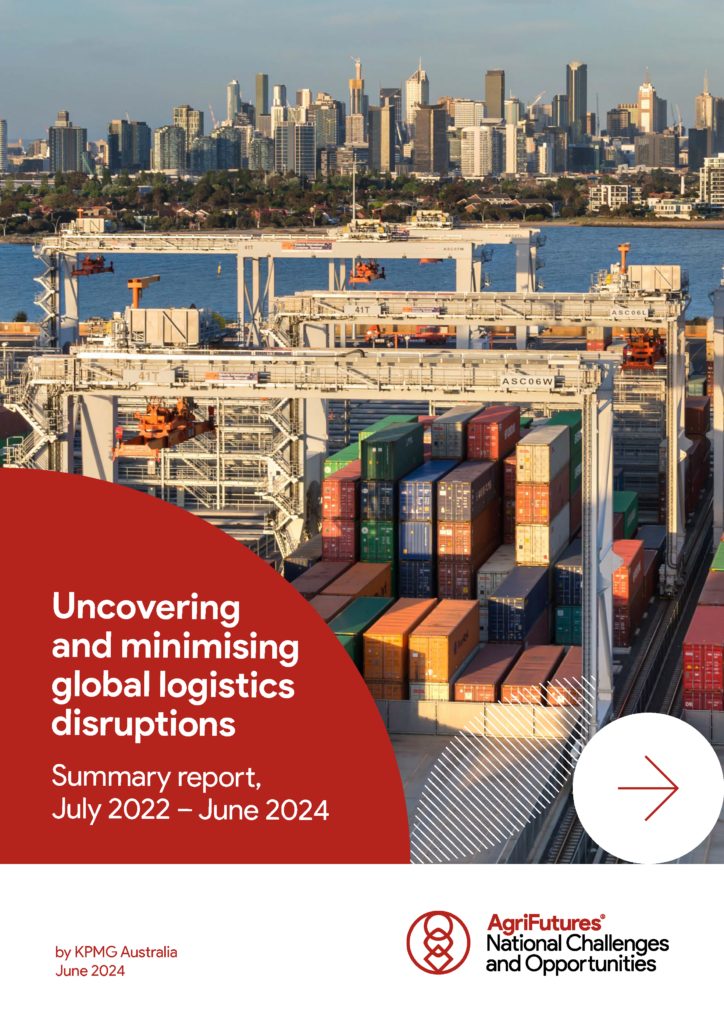COVID-19 significantly disrupted supply chain activities across all modes of freight and geographies. These disruptions, including domestic market disruptions resulting from a loss of export market access, labour challenges and policy decisions, had wide-ranging, often damaging consequences for Australian industries.
The Australian agriculture sector, highly exposed to international supply chains, faced particular impacts throughout the pandemic period. And post-pandemic, it became evident there was a continued need to better understand all forms of domestic and international logistics disruptions, and provide timely and accurate information to Australian rural industries about their likely impacts and consequences. Fluctuating air and sea freight rates and capacity, ongoing shipping delays, unstable supply factors and shifting demand dynamics, geopolitical competition, changes to trade policies and regulations, and severe weather events have all driven volatility that has impacted rural industries’ logistics over the past two years – and will likely continue to do so for years to come.
In seeking to understand logistics disruptions relevant to Australian agriculture, this project was commissioned to update industry stakeholders on global supply chain developments and identify ways to mitigate risk and minimise impacts of supply chain volatility. The project delivered monthly, bi-monthly and quarterly logistics disruption reports from May 2021 to May 2024. This final report functions as a summary document spanning logistics updates from July 2022 to June 2024.





